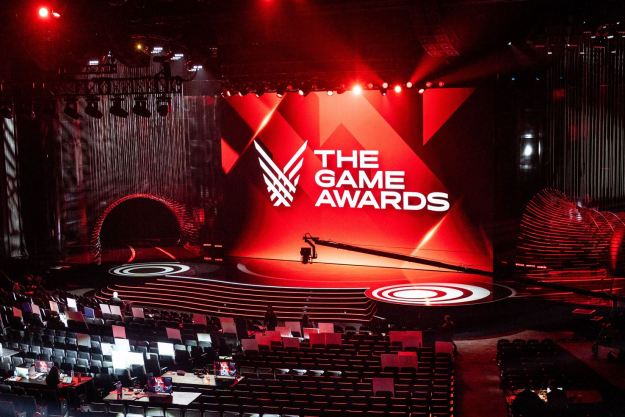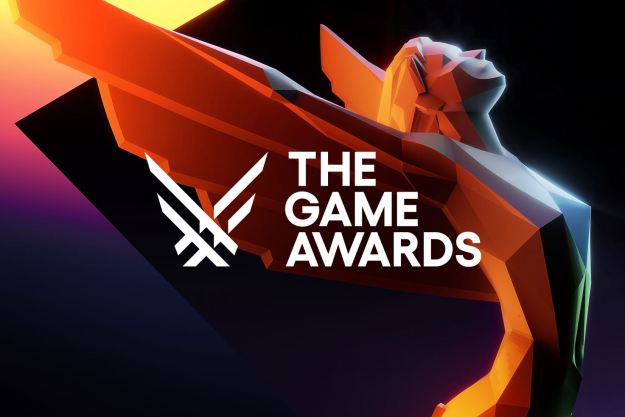The 2020 Game Awards show is tonight, and the Game of the Year category is a hot topic of conversation. While many big budget studio games are competing for top prizes this year, a historic upset could be coming. There’s a very real possibility that indie game Hades could steal the show — and it should.
Hades has been the talk of the industry ever since it exited early access in September. Developer Supergiant Games’ God-filled roguelike game gained widespread praise from critics and fans alike, even winning over players who had written the niche genre off long ago. Now, the game finds itself in the brightest spotlight possible as it goes head-to-head with the likes of The Last of Us Part II — our own Game of the Year pick. That widespread exposure alone is a testament to the comparatively smaller game’s breakout success.
A Hades win wouldn’t just be a much-deserved feather in Supergiant’s cap — it would finally give independent games a long overdue seat at a table they’re rarely allowed to eat at.
Always the underdog
The Game Awards have only been around since 2014 and, in that time, an indie game has never won top honors. It’s not hard to see why considering that previous Game of the Year recipients include groundbreaking AAA titles like The Witcher 3: Wild Hunt and The Legend of Zelda: Breath of the Wild. Standout indies like Celeste and Inside made their way into the final five previously, but were ultimately long shots against high-budget juggernauts like Overwatch and God of War.
When it comes to high-profile institutions like The Game Awards, indie games are always underdogs. Even the best ones always seem to butt up against a ceiling. In 2019, Disco Elysium won the most awards of any game that year, taking home four statues including Best Narrative and Best RPG. Still, the game was left out of the Game of the Year running entirely, as titles like Super Smash Bros. Ultimate and eventual winner Sekiro: Shadows Die Twice duked it out at the top.
The omission is a head-scratcher in hindsight. Looking at review aggregate site Metacritic, Disco Elysium averaged a 91 while Game of the Year contenders like Death Stranding currently sit at an 82. Aggregate review scores never tell the full story, as subjectivity is fluid, but they do show that Disco Elysium wasn’t a fluke that got to shine because it was a weaker year for RPGs. The game was a critical darling that was one of 2019’s top-reviewed games when all was said and done.
It’s important to note that The Game Awards’ nominations and winners are selected by a jury comprised of a mix of media outlets and influencers. The deadline for nominations comes in early November, which means that games released late in the year are often ineligible for awards or not considered due to voters not having full access (though that didn’t stop November 2019 release Death Stranding, which Game Awards co-founder Geoff Keighley cameos in, from getting nominated in every category it was eligible for last year). That creates a somewhat imprecise dynamic where heavy hitters and late-year hidden gems often fall out of Game of the Year contention.
“Snubs” like that can feel frustrating for gaming fans who want to see small, creative works celebrated in the same way that multimillion dollar projects are. It doesn’t help that The Game Awards has gained something of a reputation for being an elaborate marketing platform for major studios with cash to burn. Award recipients are secondary to the event’s massive “world premieres” that dominate headlines for days to come. This year, it’s more likely that gaming Twitter will be buzzing over Dragon Age 4 rather than whatever takes home the prize for Best Art Direction.
Oscars provides example
Any skepticism over the show’s close ties to major studios and how that plays into its awards dynamics is valid. The show’s success rests on its ability to get unprecedented access from the biggest gaming companies in the world. That’s what draws viewers in and makes it a can’t-miss event. And fans can’t be blamed for leaning into conspiracy territory when millions of dollars are at stake.
This isn’t just a problem with the Game Awards or even the video game industry as a whole. The Oscars are subject to the same scrutiny, as the show relies on Hollywood star power to bolster its ratings. Part of what made Parasite’s surprise victory at this year’s Oscars feel so cathartic was it showed that less traditional films outside of a rigid Hollywood structure can actually get the recognition they deserve after all.
While the deck seemingly feels stacked against smaller studios that aren’t producing ratings juggernauts, Hades could become The Game Awards’ own Parasite if it wins (the game currently has a 93 on Metacritic, tying it with frontrunner The Last of Us Part II). That would be a much -eserved victory for the universally beloved game during a year where indies will have a larger presence on the broadcast than ever before. Fall Guys: Ultimate Knockout and Among Us are both smaller titles that are entering the show with fervent fan support that could see them upsetting mega-franchises like Call of Duty.
It’s hard to apply much meaning to something as subjective as awards, but there’s a symbolic weight attached to any powerful institution like The Game Awards, for better or worse. Statement wins could both give indie games a kind of high-profile recognition that often eludes them, while reestablishing the Game Awards’ credibility as an even playing field for games at every level. Though above all else, Hades deserves a win because, well, it’s just that good.
Whatever happens, it’s sure to be a talking point, so tune in to The Game Awards tonight at 4 p.m. PT to catch what all the fuss is about.
Editors' Recommendations
- Should you play Hades 2 in early access or wait for the full game?
- E3 needed to end, but its demise is a net negative for the gaming industry
- The 2023 Game Awards delivered big game trailers and bigger double standards
- Fortnite’s Rocket Racing is so fun, it could have been its own game
- The Game Awards 2023: Here’s the complete list of winners



